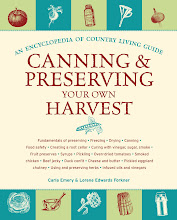- Look for early and late varieties to extend your growing season. Remember that varieties which do well in the spring may not be as successful in the fall.
- Be picky about the firms you give your business to. Don't be seduced by color pictures and imaginative promises. Most seed-selling houses are brokers. They place orders for seeds all over the place and then resell them to you. Many of those seeds come from foreign countries, but some houses grow their own. If they do, they'll probably say so. I favor small, regional companies that follow organic principles.
- Every area has different growing conditions. Ask gardeners who live near you what varieties they have best success with. Your local extension agent is another info source. Order from catalogs directed to your particular climate zone.
- Note info on new varieties, characteristics of plants, and instructions for growing them.
- Look for varieties that are resistant to whatever problems are prevalent in your area.
- The same variety is sometimes sold by different companies under different names. Latin names are the best guide to what species you're getting. Patented names give you precise variety identities, but it's illegal to save seed from a patented plant.
- You have to evaluate all the characteristics of various varieties: earliness, tolerance/resistance, flavor, compactness, yield, etc., and then choose one or several. Each one has advantages and disadvantages.
- Store seeds in a dry, cool room. (They are living but dormant.)
- If you plan to save your own seed-once you have your first mature plants-buy "open-pollinated" rather than "hybrid" varieties. Don't buy patented.
- When buying seeds by mail, order early to get the best selection and avoid the delays associated with peak sales periods.
skip to main |
skip to sidebar

 Posts
Posts

 Posts
Posts
Related LInks
Follow Sasquatch Books on Twitter
Search This Blog
Encyclopedia of Country Living blog
Sasquatch Books
Subscribe to RSS Feed









No comments:
Post a Comment